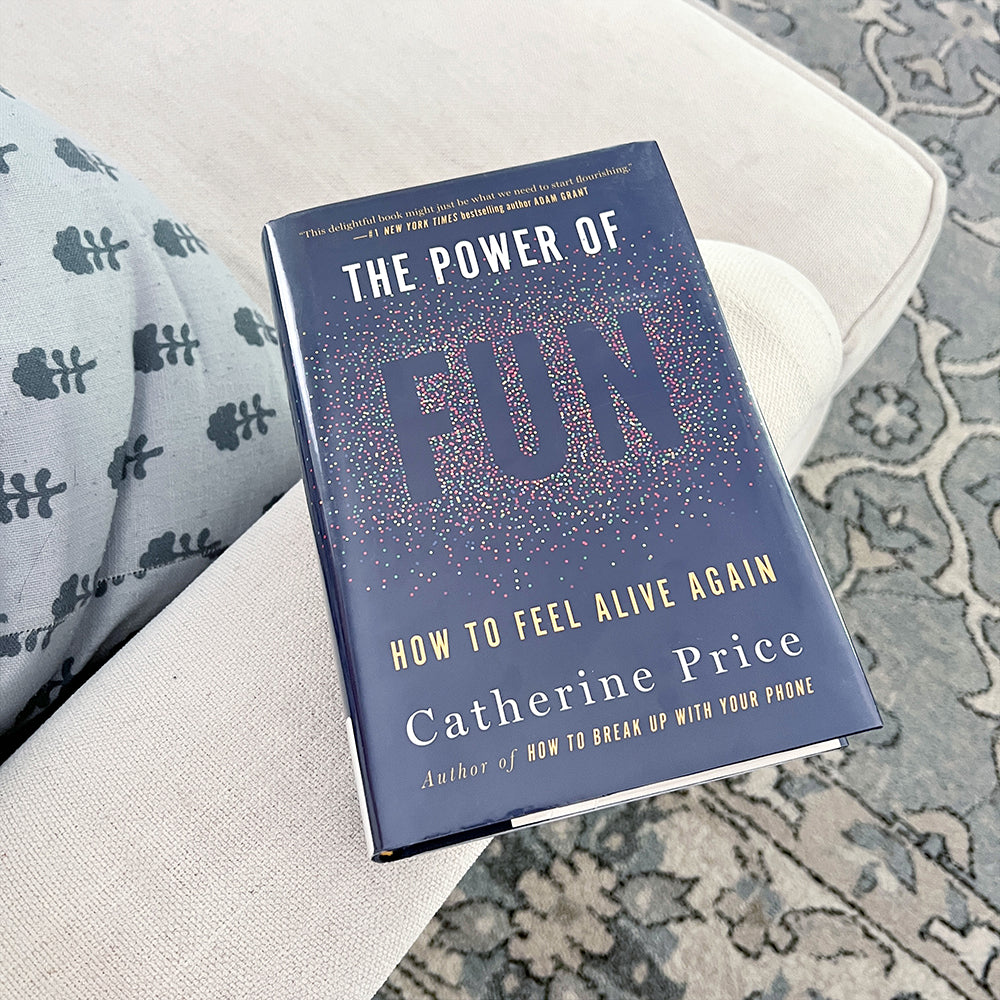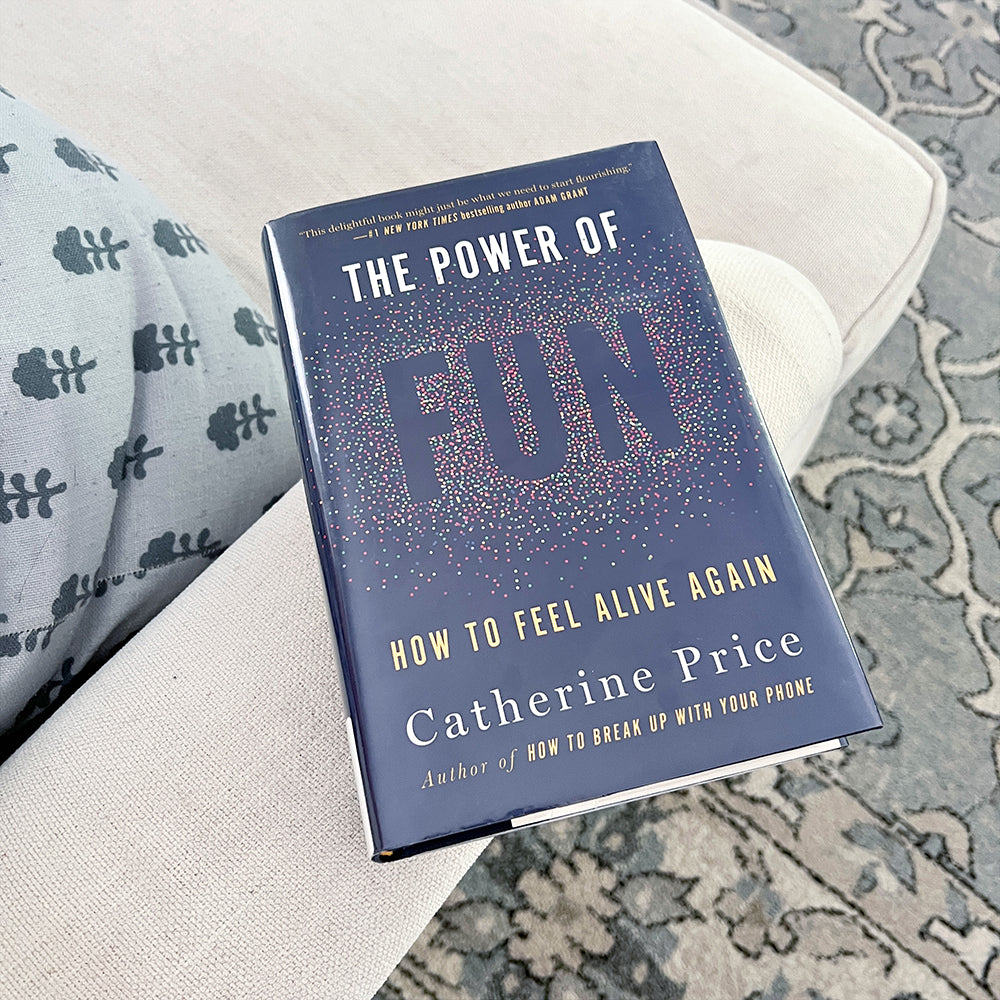Love reading? Don't miss the Cultivated Reading Journal! Track your habits and books read, thoughtfully choose the books you read, and take what you can from each book you spend time with. We know you'll love it!
Encouraging you to have FUN with your goals has always been a hallmark of the PowerSheets® process—after all, if goal setting is mostly drudgery, duty, and boredom, who'd stick with it?!
We do things differently around here. We know the truth about how goals really get accomplished—and how to actually follow through. The PowerSheets proven process works because it includes celebrating the small wins, focusing on what matters most, and lots of fresh starts along the way! And FUN, of course!
But, even though we know fun is an important part of goal setting, it can sometimes be hard for this community to prioritize it. Many of us are recovering perfectionists, we all have full lives, and sometimes our (good!) desire to make each moment intentional and meaningful edges out the lighthearted and silly.
That's why I think Cultivators will love Catherine Price's book The Power of Fun. It's split into two parts.
In the first, she defines what she calls True Fun (experiences that include playfulness, connection, and flow), which stand apart from Fake Fun (think: mindlessly scrolling Reels or binge-watching Netflix). She diagnoses why so many of us feel "dead inside" (a LOT to do with screens, but also loneliness, brain chemistry, and our culture's insistence on valuing the quantifiable, productive, and money-generating).
It's obvious from part one that her previous book was all about "screen-life balance"—she goes deep into the research and existential thoughts on the many ways our screens have affected our brains and our lives. She ends the first section by sharing all the ways True Fun can make us "feel alive again," as the subtitle on the cover promises.
The second part of the book is called "How to Have Fun," and it takes seven chapters to do just that! Each one is filled with tons of examples, audits, exercises, and ideas to help every personality and life circumstances fit more True Fun into her life.

Here are 5 of my favorite takeaways from The Power of Fun!
1. Being a beginner is liberating. Many of us shy away from potential new opportunities for fun because we fear looking stupid. "But if you're an absolute beginner at something," Catherine writes, "why would you feel any shame at all? You're not supposed to be good! Far from being a trigger for shame, being an absolute beginner at something can be freeing, because no one expects you to be good."
Being willing to try something new is the only way to expand your collection of interests, hobbies, and passions and open up more paths to True Fun, she writes. "We should be embracing that beginning feeling, not running away from it."
2. Small fun can be True Fun. I loved that this book emphasized how life-giving tiny moments of playfulness, connection, and flow can be. Fun is not only found with huge overhauls to our schedules or activities! One example of something small that can make a big difference in our experience of each day: sending out play signals.
She quotes Stuart Brown in the book: “What play signals do is invite a safe, emotional connection, if even for an instant. Even in casual interactions, the sincere compliment, the remark about the weather, a joke or sympathetic observation opens people up emotionally. It transforms a grim, fearful, and lonely world into a lively one.”
Constantly staring at our screens, however, cuts off play signals and invitations to play, and thus possible moments of play and connection are lost. "When we look down at our phones," she writes, "we also miss out on fleeting connections with strangers – seemingly meaningless interactions that actually have the power to make us feel less isolated and alone."
I've definitely noticed in my own life how sweet those fleeting connections can be!
3. Seek delight. The idea that our lives are what we pay attention to is a recurring theme throughout the book. In the "Attract Fun" chapter, Catherine talks about how purposefully seeking delight (and fun) will result in experiencing more of it. "If we train ourselves to notice delights – the everyday beauties and kindnesses and amusing absurdities, the things that make us laugh or that we feel grateful for – we will feel more positive. If we pay more attention to sources of playfulness, connection, and flow, we’ll have more fun.
"On the other hand, if we train ourselves to focus on disappointments, failures, and sadness, then we will experience our lives as a series of disappointments, failures, and occasions to feel sad. And if we spend our time consuming content that makes us anxious and upset, the more anxious and upset we will be."
Life is, of course, not all sunshine, but this chapter underscored the importance of mindset in life and goal setting, and it was a welcome reminder.
4. Breaking up monotony slows down time. Catherine introduced me to the idea of "pattern separation"– finding ways to break up monotony. Instead of life feeling like a "long, smooth chain, you’ll end up with the equivalent of a necklace made of colorful beads… the more distinct these beads are (and the more beads you collect each day), the more time will seem to slow down."
I have found this to be so true in my own life. Even switching up tiny aspects of my routines can me the whole day feel fresh (and more fun!).
5. Rebellion can be good. If you're a PowerSheets user, it's likely you identify as a rule follower. Lots of people in this community want to get things "right"! Rebelling in small ways, though, can be a powerful tool in breaking up monotony and having more fun. I loved the questions she posed to help kickstart some everyday rebellion: "Where in your life can you rebel? Is there a habit or belief you could question? A routine or convention from which to deviate? A tradition you could create or reinvent? A way to embrace informality, to abandon perfectionism, to get out of your head, to reconnect with your childhood self, to defy expectations, or to escape your responsibilities, even if just for a little bit?"
If you've read The Power of Fun, what were your favorite takeaways? I'd love to hear!
P.S. If you love reading, don't miss our Cultivated Reading Journal!



